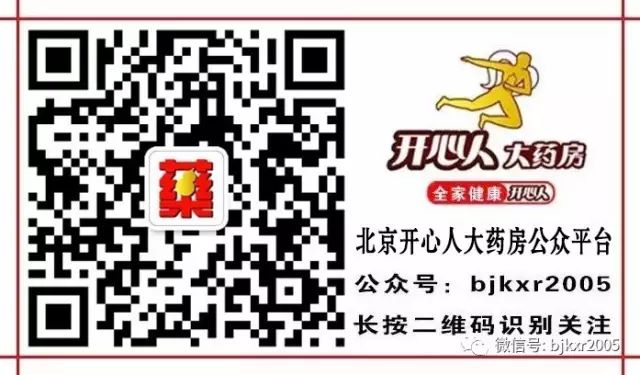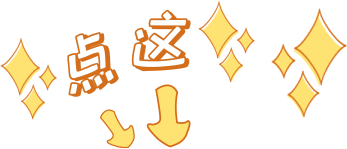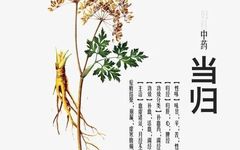Angelica Sinensis (scientific name: Angelica sinensis (Oliv.) Diels), also known as Dong Quai, is a perennial herbaceous plant of the Apiaceae family. Introduced to China from Europe in 1957, it is primarily produced in the southeastern part of Gansu Province, particularly in Min County, which is known for its high yield and quality. Other provinces such as Yunnan, Sichuan, Shaanxi, and Hubei also cultivate it. Its root is used medicinally and is one of the most commonly used traditional Chinese medicines (TCM), known for its effects in nourishing blood, regulating menstruation, alleviating pain, moistening dryness, promoting bowel movements, and possessing anti-cancer, anti-aging, and immune-boosting properties.
The Eight Major Benefits of Dong Quai
Traditional Chinese medicine (TCM) considers Dong Quai to have a sweet and heavy flavor, making it particularly effective for nourishing blood. Its light and spicy nature allows it to invigorate blood circulation, thus it serves as a crucial herb for blood-related issues. Therefore, it can both nourish and invigorate blood, regulate menstruation, and relieve pain. Common conditions in women such as irregular menstruation, dysmenorrhea, blood deficiency amenorrhea, pale complexion, weakness, anemia, uterine bleeding, postpartum blood stasis, and epistaxis (nosebleeds during menstruation) can all be treated with Dong Quai. It is one of the most frequently used herbs in TCM, especially beneficial for patients with anemia. It can significantly enhance the body’s hematopoietic function, increasing the levels of red blood cells, white blood cells, and hemoglobin.
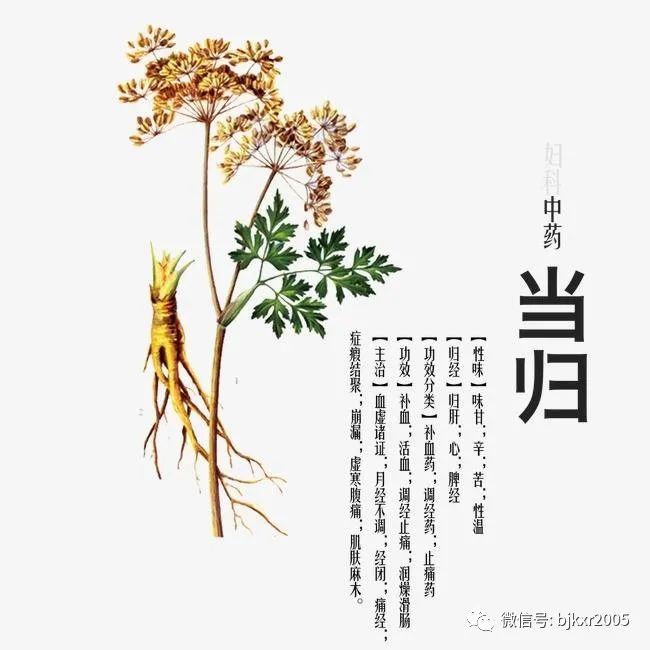
1. Nourishing Blood
Dong Quai is primarily known for its ability to nourish blood, making it the top herb for this purpose. It is suitable for symptoms caused by heart and liver blood deficiency, such as pale or sallow complexion, fatigue, pale lips and nails, dizziness, palpitations, and insomnia. When combined with Shu Di Huang (Rehmannia), Bai Shao (White Peony), and Chuan Xiong (Szechuan Lovage), it forms the representative blood-nourishing formula known as Si Wu Tang (Four Substance Decoction), which is effective for regulating menstruation and nourishing blood, especially after childbirth.
2. Moistening the Intestines and Promoting Bowel Movements
In TCM, it is believed that blood and body fluids share a common source. Those with blood deficiency often have insufficient body fluids, leading to constipation. Dong Quai can moisten the intestines and promote bowel movements, often used in combination with Ma Ren (Sesame Seed), Ku Xing Ren (Bitter Apricot Kernel), and Da Huang (Rhubarb) to treat blood deficiency constipation. It can also be combined with Fang Feng (Siler), Chuan Xiong, Bai Shao, Da Huang, Bo He (Mint), and Ma Huang (Ephedra) to create Fang Feng Tong Sheng San, which can clear heat and promote bowel movements.
3. Regulating Menstruation and Invigorating Blood
Dong Quai’s light and spicy nature allows it to invigorate blood, making it suitable for regulating menstruation and alleviating pain, particularly for women. It is especially effective for conditions such as irregular menstruation, dysmenorrhea, and blood deficiency amenorrhea, earning it the title of “the sacred medicine for women’s health”. When combined with Tao Ren (Peach Kernel), Hong Hua (Safflower), Shu Di Huang, Bai Shao, and Chuan Xiong, it forms the well-known gynecological formula Tao Hong Si Wu Tang, commonly used for early menstruation and dysmenorrhea. Dong Quai decoction or tincture has been shown to have a suppressive effect on isolated frog hearts, and at high doses, it can cause cardiac arrest during diastole. Dong Quai also protects against arrhythmias in rats with myocardial ischemia-reperfusion injury, with a dosage of 0.6g/kg showing a significant reduction in the incidence of premature beats and overall arrhythmia. Additionally, the butylphthalide in Dong Quai can increase the diameter and blood flow velocity of the pial microarteries after middle cerebral artery occlusion (MCAO), thereby improving pial microcirculation. During cerebral ischemia, neuronal apoptosis occurs, and butylphthalide can reduce or halt the apoptosis induced by low glucose and hypoxia, preventing the expansion of cerebral infarction.
4. Effects on Uterine Smooth Muscle
Research by Fu Hua et al. in 1954 reported that Dong Quai contains both excitatory and inhibitory components affecting uterine smooth muscle, exhibiting a bidirectional effect. The inhibitory component is primarily volatile oil, while the excitatory component consists of water-soluble or alcohol-soluble non-volatile substances that are insoluble in ether. The volatile oil of Dong Quai has a direct inhibitory effect on the isolated uteri of various animals, including rabbits, guinea pigs, mice, rats, and dogs, regardless of their pregnancy status, leading to a gradual decrease in rhythmic contractions until they cease, resulting in a relaxed state. It also counteracts contractions induced by posterior pituitary hormones, histamine, adrenaline, and acetylcholine. The tincture of Dong Quai primarily exhibits excitatory effects, although high doses may sometimes show inhibitory effects. The volatile oil of Dong Quai inhibits rhythmic contractions of the isolated uterus, leading to a relaxed state and counteracting uterine contractions.
5. Anti-Cancer Effects
Dong Quai can be widely used for various tumors, especially gynecological tumors, particularly suitable for those with stagnation of qi and blood stasis. It is also beneficial for patients with late-stage cancer or those who are weak after surgery, radiotherapy, or chemotherapy, as it helps to strengthen the body and combat cancer.
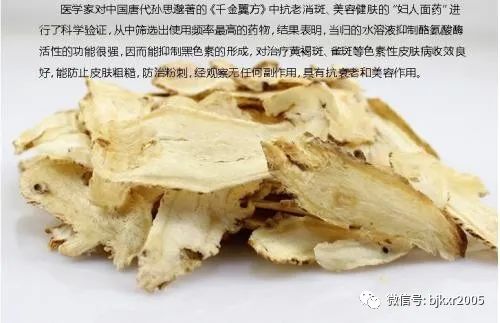
6. Anti-Aging Effects
Dong Quai decoction has a significant impact on learning and memory in mice, as measured by the Morris water maze test. It can improve dementia induced by aluminum trichloride, reducing the levels of lipid peroxidation in the brains of demented mice and the activity of B-type monoamine oxidase, thus treating senile dementia.
7. Prevention and Treatment of Frostbite
In TCM, frostbite is believed to be caused by insufficient yang energy in the body, leading to cold invasion, stagnation of blood, and resulting in symptoms on the skin. Therefore, treatment often involves warming the meridians, dispersing cold, invigorating blood circulation, and reducing swelling and pain. The Dong Quai Ginger Lamb Soup from the Shang Han Za Bing Lun (Treatise on Cold Damage and Miscellaneous Diseases) combines Dong Quai to nourish and invigorate blood, ginger to warm yang and disperse cold, and lamb to replenish deficiency and generate blood, achieving a synergistic effect of nourishing blood, invigorating circulation, and warming yang.
8. Immune Function
Dong Quai and its extracts, such as sodium ferulate and Dong Quai polysaccharides, have a significant stimulating effect on the mononuclear-macrophage system and can modulate and restore immune function in immunocompromised individuals. Dong Quai also promotes lymphocyte transformation in healthy individuals.
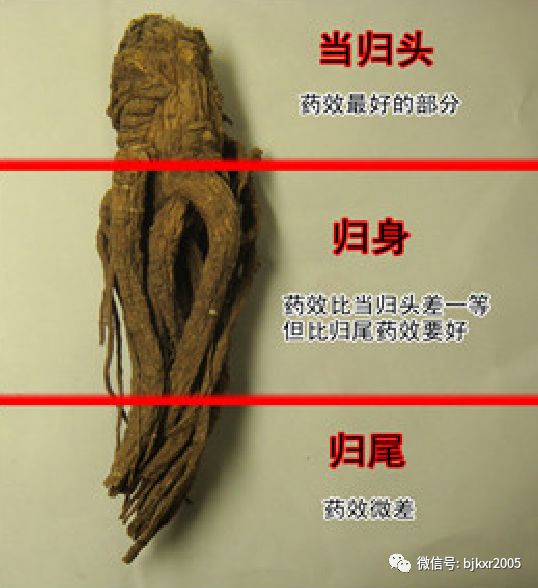
While Dong Quai has many benefits, it also has several contraindications that should be noted. Many people can consume Dong Quai, but it should be taken in moderation to avoid potential side effects. Overconsumption of Dong Quai decoction or powder may occasionally lead to fatigue and drowsiness, which can resolve after discontinuation. Injection of Dong Quai volatile oil at acupoints may cause fever, headache, dry mouth, and nausea, which can also resolve on their own.
The name “Dong Quai” has two legendary origins.
1. According to the Pharmaceutical Dictionary, “Dong Quai is named because it can regulate qi and nourish blood, allowing qi and blood to return to their respective places.” Li Shizhen in the Compendium of Materia Medica stated, “In ancient times, when a man married, he needed to continue the lineage; Dong Quai regulates blood and is a vital herb for women, implying a longing for the return of a husband, hence the name Dong Quai.” This aligns with the Tang poem, “Hua Ma is easy to plant, but no one plants it; it is the time of return, yet no one returns.” Because Dong Quai is a crucial herb for women’s health, it is metaphorically named “longing for the return of a husband.”
2. The Records of the Three Kingdoms contains two stories related to Dong Quai. The first is from the Wu Book: Biography of Tai Shici, which mentions that Cao Cao, upon hearing of Tai Shici’s service to Eastern Wu and recognizing his talent, wanted him to abandon Wu and return to Wei, sending him a letter with some Dong Quai inside. The second story is from the Shu Book: Biography of Jiang Wei, which states that in the sixth year of Jianxing, the governor of Tianshui County in Wei, Ma Zun, was unfriendly towards Jiang Wei, suspecting him of having ulterior motives. Jiang Wei resolutely defected to Zhuge Liang. The strategists of Wei, knowing Jiang Wei was a rare talent, tried various means to persuade him to “return”. They knew Jiang Wei was a filial son, so they brought his mother to Luoyang, coercing her to write a letter to Jiang Wei, enclosing Dong Quai in the envelope, implying that Jiang Wei should return to Wei.
Upon receiving the letter, Jiang Wei understood its intention. However, he was clear about his public and private duties, reflecting on the fact that Shu was the legitimate successor of the Han dynasty, and Zhuge Liang trusted and valued him greatly. He believed that the day he could reunite with his mother would be when he unified the Central Plains. Thus, he wrote back to his mother, enclosing some medicinal herbs to express his aspirations: “A hundred acres of good land is not as valuable as one acre (mother); but having far-reaching ambitions is more important than Dong Quai.” A mother knows her son best; upon receiving her son’s letter, Jiang’s mother understood and said, “My son has great ambitions, and I have no other desires.”
Later, Wei repeatedly pressured Jiang’s mother to write letters persuading Jiang Wei to abandon Shu and join Wei, but she always refused. After Jiang Wei’s death, the people of Shu admired him greatly and built a temple in his honor at Jian Ge, where he had stationed troops for many years, also known as Jiang Gong Temple. Inside the temple, there is a couplet that reads:
High towers and strong passes display heroic spirit, offering heartfelt devotion and boldness;
Remaining water and mountains under the setting sun, with humility and far-reaching aspirations, empty longing for Dong Quai.
Discover More Exciting Content
Follow Our Official Account
